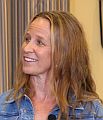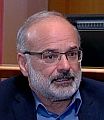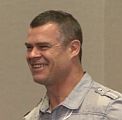DOWNLOAD A COPY OF: “Living Water Smart in British Columbia: Policy frameworks to shape urban design” – released by the Partnership for Water Sustainability in April 2024

“In late 1996, in came Erik Karlsen from the Province as the spokesperson for the first Fish Protection Act. He convened discussions with environmental, engineering and planning staff. Those were such fantastic discussions. There was a really good alignment and call to action on making streamside regulation work. It was a major advancement but a lot of stress as well. Streamside regulation was being portrayed as a huge land grab. There was a lot of back and forth to move from something that was site-specific to more of a hardline edict with the province,” stated Susan Haid.










